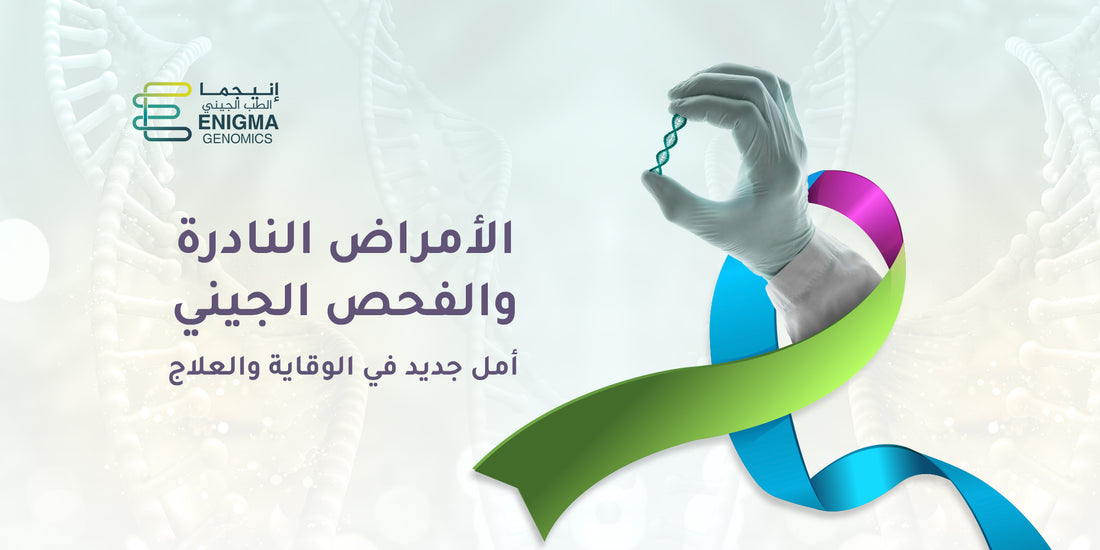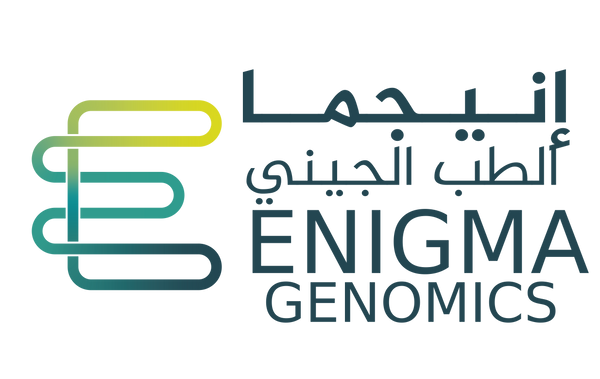
Rare Disease Diagnostics & Genetics
A disease is classified as rare when it affects 1 in 2,000 people in the population, but considering the millions of people affected by the 6,000-8,000 rare diseases discovered so far, we find that they are more widespread than we think, and thus increase the economic and social burdens on society.
Approximately 80% of these rare diseases are due to genetic causes and factors, and the remaining percentage is due to environmental causes such as viral or bacterial infections, etc. Approximately 75% of rare diseases are present at birth, and some do not appear until a very late stage, leading to the death of approximately 30% of children before the age of five.
In this article, we will highlight the rare diseases that most affect society and the role of genetic testing in early detection, prevention and treatment.
Rare diseases
Genetic rare diseases vary between cancers, hereditary neurological diseases, metabolic diseases, autoimmune diseases, and others, the most prominent of which are:
Huntington's disease
Huntington's disease is one of the rare genetic neurological diseases resulting in nerve cells in some parts of the brain that stop working properly, leading to involuntary movements of the face, fingers and toes, memory loss, difficulty concentrating, and may cause death. The risk of developing Huntington's disease increases by 50% if one parent has it.
Duchenne muscular dystrophy
Duchenne muscular dystrophy is a rare hereditary disease that results from a defect in the gene responsible for producing the dystrophin protein necessary for healthy muscle building, leading to muscle weakness that begins in the legs and pelvis, causing loss of the ability to walk, then the arms, neck, heart muscle, and respiratory muscles.
Duchenne muscular dystrophy usually has symptoms from birth, especially in boys, and affects approximately 1 in 3,500 infants worldwide.
Neurometabolic disorder
Neurometabolic disorder is a rare genetic disorder that results from genetic mutations in a child's genes that affect the body's production and use of energy from food. The neurometabolic disorder causes microcephaly, epilepsy, hearing and vision problems, and muscle weakness.
Xeroderma pigmentosum
Xeroderma pigmentosum is a rare hereditary disease that causes extreme skin sensitivity to ultraviolet rays found in sunlight and some artificial lighting, affecting the eyes and nervous system, causing skin cancer, changes in skin pigment, and premature skin aging.
Xeroderma pigmentosum affects about one person out of every million people and is considered a hereditary disease that parents may be carriers of the changes that cause it without showing symptoms, but which are passed on to their children in the future.
Progera syndrome
Progera syndrome is considered a very rare genetic disease that affects children. It affects one in every 4 million children and is caused by a mutation in the LMNA gene, which leads to severe hardening of the arteries at an early age and symptoms of premature aging such as wrinkled skin, short stature, and weak bones.
Rare cancers
Among the most prominent rare cancers are:
- Breast cancer in men affects only 1% of men
- Pancreas cancer
- Sarcoma cancer
- Eye cancer
- Kidney cancer
- Lymphoma
Genetic screening and rare diseases
Genetic testing contributes significantly to:
Early diagnosis
Genetic testing helps identify the genetic causes that cause rare diseases early through genetic testing before marriage and pregnancy, genetic testing after birth, genome testing, and exome screening to provide the necessary recommendations and accurately diagnose incurable cases early to provide the necessary care and appropriate treatment.
Planning for a healthy family
Genetic testing helps couples about to get married and married couples discover genetic changes that may cause hereditary diseases for their children in the future, such as xeroderma pigmentosa, Duchenne muscular dystrophy, hereditary epilepsy, and others, in order to provide the necessary recommendations and available options for procreation.
Developing new treatments
Through genetic screening, we can discover more genes in which changes lead to rare diseases, to form a more comprehensive view of how these changes contribute to rare genetic diseases and to develop more effective treatment options.
Choosing the appropriate treatment (personalized treatment)
Genetic testing works to discover the patient's genetic makeup and the changes occurring in it that cause the disease, which may affect the extent of response to treatment and its effectiveness from one person to another, which helps the doctor determine the appropriate treatment option for the patient and reduce unwanted side effects of other treatments to increase the chances of recovery. For example, it may be clear from the initial diagnosis of a cancer patient that he needs surgery to remove the tumor, but after conducting a genetic examination, the doctor may replace this option with targeted cancer treatment, chemotherapy, or other therapeutic options appropriate to the patient’s condition.
Genetic counseling
Genetic counseling helps guide the appropriate procedure and recommend a more comprehensive genetic examination based on the information provided about the health condition of you and your family. Genetic counseling also contributes to determining the frequency of the disease in the family based on the degree of relationship.
The role of the genetic counselor is not only limited to the pre-test stage, but also helps you understand the results of the test in order to give you the necessary recommendations and directions and provide you with the necessary psychological support.
Enigma Genomics provides comprehensive genetic tests for hereditary diseases, such as premarital screening, which covers more than 550 hereditary diseases, Comprehensive Cancer Panel, which covers 109 genes associated with different types of cancer, and Whole Genome Sequencing, which covers more than 7,500 Whole Exome Sequencing, which covers 7,000 genetic diseases and others to help you in the journey of maintaining your health and the health of your family.
